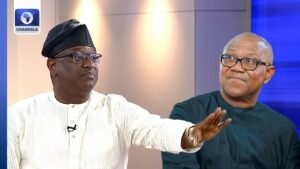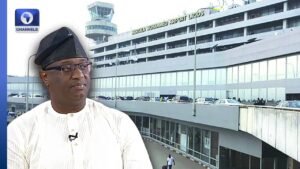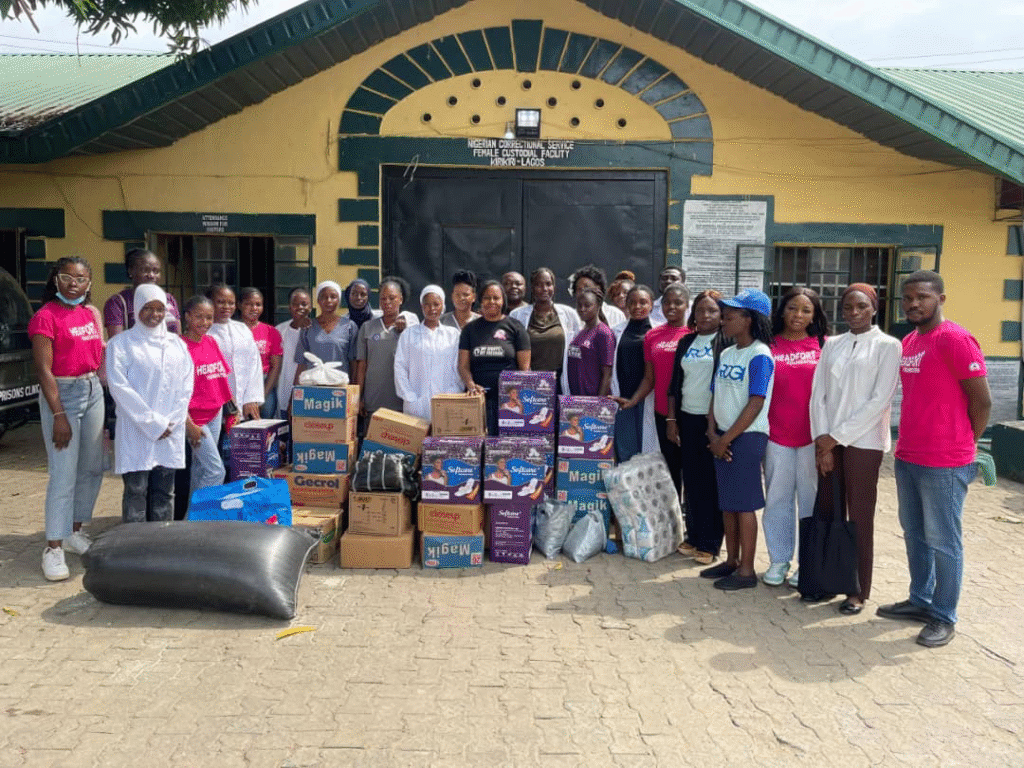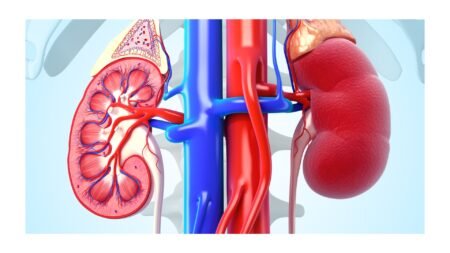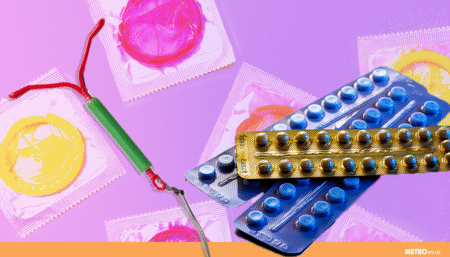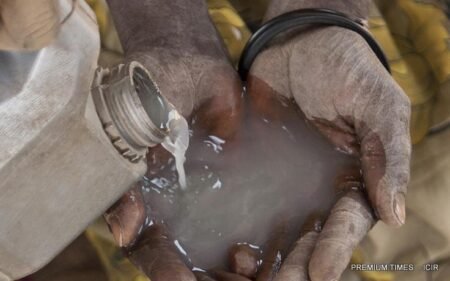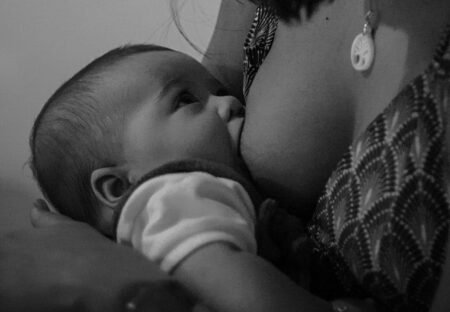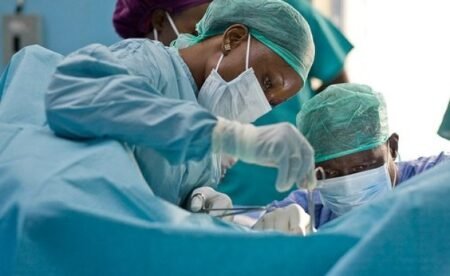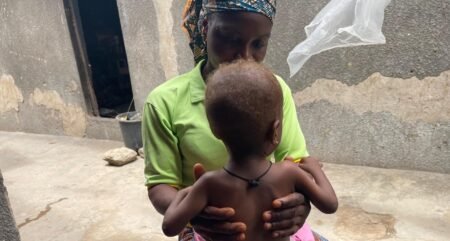Experts in the health and development sector gathered on Tuesday to discuss the importance of localised funding models in sustaining Nigerian non-governmental organisations (NGOs) amid cuts in international aid.
The Executive Director and founding member of the development Research and Projects Centre (dRPC), Judith-Ann Walker, said that local intermediaries with a proven track record should be funded to cascade resources directly to grassroots NGOs.
Speaking at the NGO Support Initiative (NSI) Grantees’ Pause‑and‑Reflection Meeting, Ms Walker noted that this approach is more cost-effective and ensures funding reaches those closest to communities.
“So we believe that local intermediaries, those that have proven themselves with a strong track record, not just the dRPC, there are many, that can be funded to cascade funding down,that is more cost effective, it is more efficient,” she said.
She stressed the importance of investing in governance, finance, and human resources over one-off projects, noting that past Gates Foundation and USAID programmes built organisations able to sustain impact.
The NSI Grantees’ Pause‑and‑Reflection Meeting brought together beneficiary NGOs, dRPC management and mentors to assess progress on the first phase of the initiative.

The session provided a platform to review project outcomes, share experiences of collaboration with government agencies, highlight challenges, and explore strategies for sustaining impact.

Overview of the NSI project
In April, the dRPC, supported by the Ford Foundation, launched the NSI with the award of N5 million each to 17 selected NGOs under its first cohort.
The three‑month intervention combined financial support with mentorship from experienced civil society leaders, aimed at strengthening organisational capacity and ensuring continuity of critical community programmes.
Speaking on the project’s performance so far, Ms Walker said the NSI is a support scheme that was conceived to assist Nigerian NGOs that lost USAID funding despite implementing high‑impact work.
She added that a second cohort is set to be launched next week , with a further 17 organisations expected to benefit.
Ms Walker emphasised that collaboration with government agencies was a requirement for selection under the NSI and is crucial for sustainability, policy uptake and community acceptance.
“There is a thinking of NGOs as a third sector, separate from the government, but we don’t believe NGOs should be apart,” she said.
“For your work to be sustainable, to have impact and legitimacy, and to influence policy, you must collaborate.”
In February, PREMIUM TIMES reported that the US State Department announced a 92 per cent reduction in the USAID’s foreign assistance budget, a move expected to drastically limit support for development efforts in countries such as Nigeria.
The cut, totalling $54 billion in contracts and multi-year programmes, is part of a broader review aimed at sharply reducing US foreign aid, a move that has since disrupted ongoing projects and threatened the sustainability of long-term development initiatives.
Impact stories from grantees
David Ahanor, Project Director of Rising Hope Girl’s Foundation, said his team used their NSI grant during the project’s first phase to expand digital empowerment programmes and safe school awareness campaigns in marginalised communities of the Federal Capital Territory.
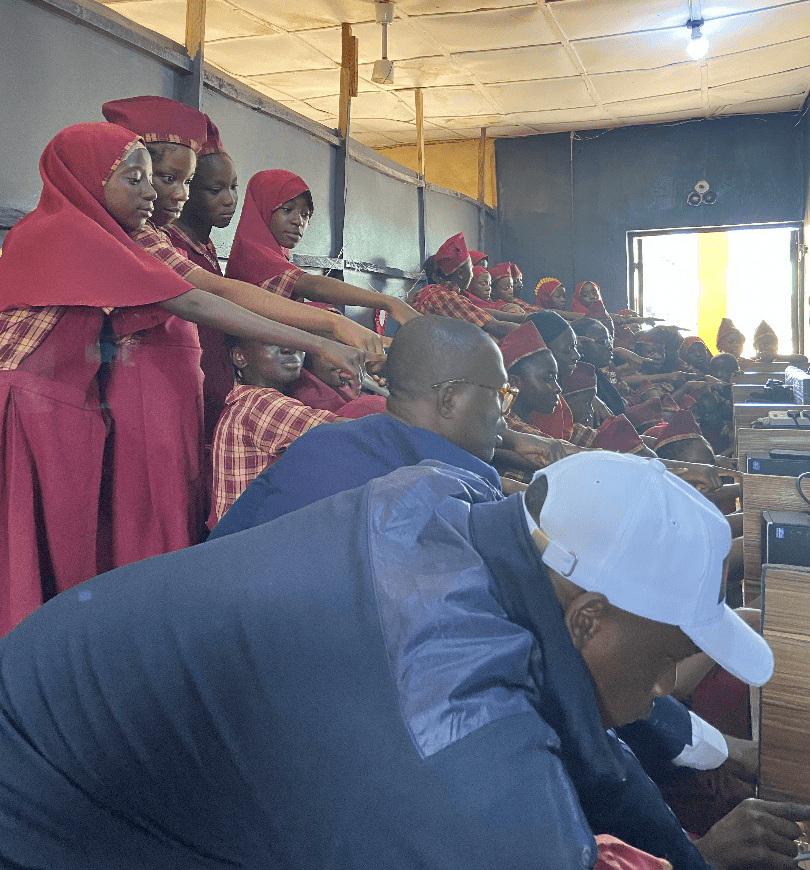 Mr Ahanor said the team visited areas such as Kubwa, Bwari, and Chikakore, where digital infrastructure is almost non-existent.
Mr Ahanor said the team visited areas such as Kubwa, Bwari, and Chikakore, where digital infrastructure is almost non-existent.
“With the NSI grant, we set up a digital lab in Dutse Alhaji, training over 200 students and equipping more than 100 teachers with skills in artificial intelligence and digital tools,” he said.
Recalling one memorable case, Mr Ahanor spoke about a girl in Dutse Alhaji who had never used a computer before the project.
Her first attempt at blogging and creating her own posts, he said, “opened a new world for her” and sparked visible excitement.
The program also integrated awareness of sexual and gender-based violence (SGBV) into its digital training sessions, encouraging students to share experiences of harassment, bullying, and exploitation.
Mr Ahanor said the grant expanded his impact across Abuja and drew the attention of the Universal Basic Education Commission (UBEC), which expressed interest in a potential nationwide collaboration.
Another grantee, Oluwakemi Adekan, Programme Manager at Headfort Foundation for Justice in Lagos State, at the project’s inception implemented the “Wellness Behind Bars” initiative ,conducting medical outreach at the Female Correctional Centre, Kirikiri, Lagos.
Ms Adekan said a 25-member team, including 14 medical professionals, delivered mental health education, medical screenings, and on-the-spot treatment to 200 inmates, with many receiving healthcare for the first time since incarceration.
Beneficiaries, she noted, included pregnant inmates, elderly women, and mothers with children.
Hygiene items such as sanitary pads, toothpaste, and clothing were also distributed.
READ ALSO: Visually impaired students shine at National Schools’ Chess Championship
About dRPC
dRPC is a Nigeria-based non-profit that works with local organisations, government agencies, and international partners to support health, education, and development programmes, often focusing on capacity-building and community-driven initiatives.
The Executive Director and founding member of the development Research and Projects Centre (dRPC), Judith-Ann Walker.
Rising Hope Girl’s Foundation team with students inside the computer lab
Headfort Foundation for Justice in Lagos State alongside correctional officials, medical doctors, and other health
Read the full article here

